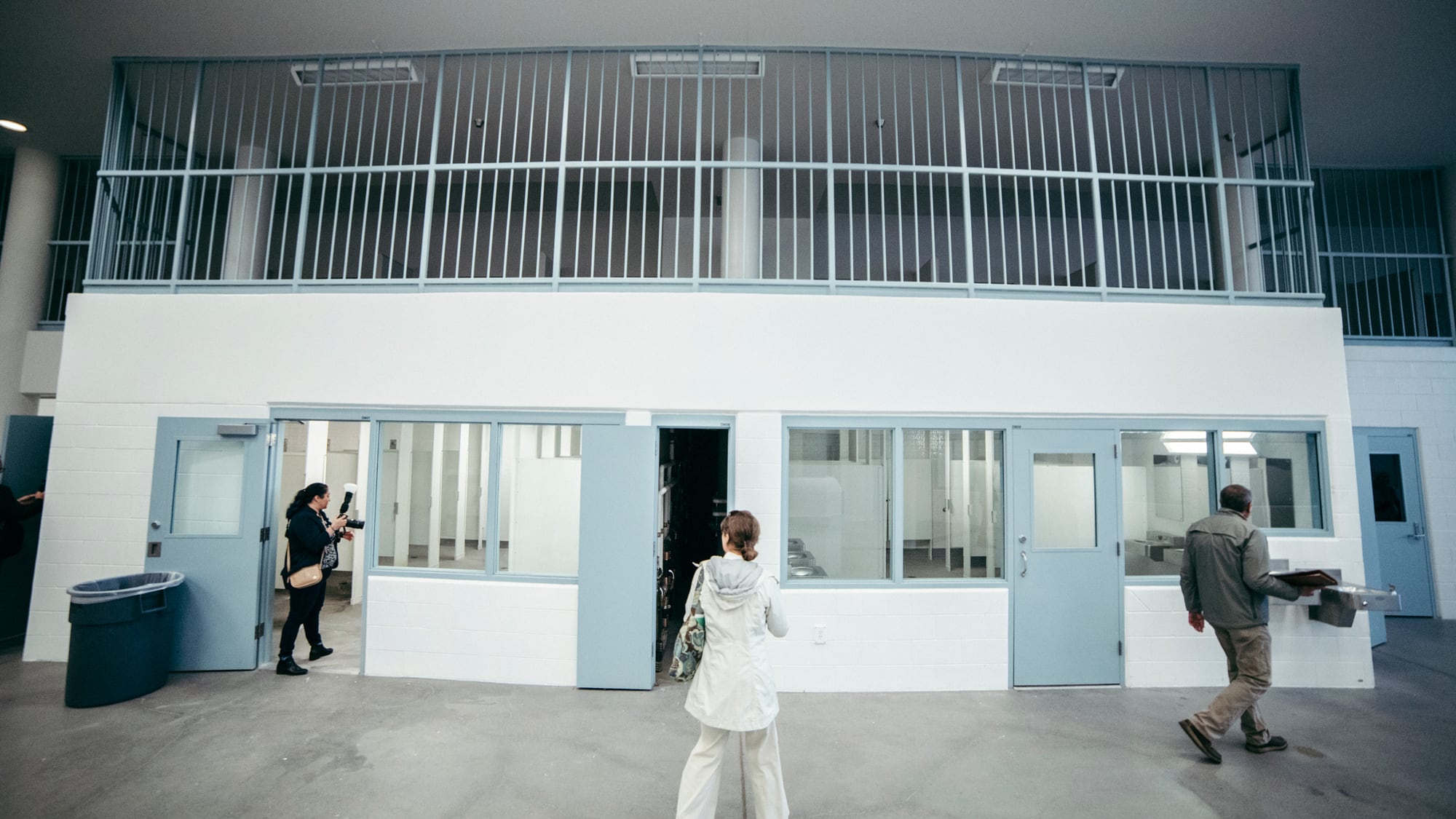As winter descends on Portland, the former Wapato Jail now has 40 shelter beds open, and is prepared to operate another 95 when it can end social distancing and increase capacity.
The 155,000-square-foot building, now called the Bybee Lakes Hope Center, is still undergoing renovations, but the center was able to open a portion of the facility for what it refers to as Phase 1.
"We had a third of this building that we could open up while we were under construction, so we changed direction on that in October and we decided that we can get the dorm portion open and running so we can meet the needs of the people by winter time," says executive director Alan Evans.
Because of the pandemic, the center, which opened Oct. 12, is only allowing clients to occupy about 30% of the 135 beds. There are 33 occupants at the moment.
Phase 2 of the renovation will consist of a large remodeling to make the building more homelike by adding more natural light and upgrading the kitchen and putting in a playground.
For years, Portland business leaders and elected officials bitterly debated the fate of the never-used jail, with real estate magnate Jordan Schnitzer among those advocating it be turned into a homeless shelter. Last year, Schnitzer bought the property—and partnered with Evans to use it for transitional housing.
Evans says the Hope Center has overcome one of its long-standing obstacles: transportation to its remote North Portland location. TriMet has agreed to run a bus line to the center.
"We've got a lot of really great things moving forward, but it's been a slow process," Evans says. "COVID is really taking a toll on everything: The fundraising aspects, the construction aspects, and it's also taken precedence in how we accept people into our facility right now."
The center is different from other shelters because it has a vetting process that screens potential residents through referrals from other programs, and it's against the center's rules to drink or use drugs there. Now that process is even more limited because of the capacity limitations imposed by COVID-19.
Evans says despite all the hurdles the Hope Center has faced, he is excited about finally being able to help people get their lives back on a firm footing.
"There's a lot of people falling out of the system that are not your average addicts, and they're being pushed into survival mode. We want to make sure we can help those people who are willing to help themselves," Evans says. "When you walk in the place and you see the families and you see the kids and the elderly and you see the people know it's a safe place they can flourish, it's pretty exciting."
